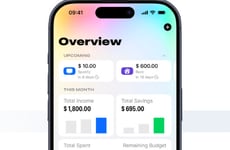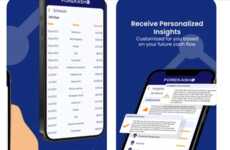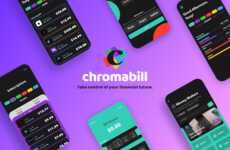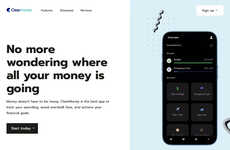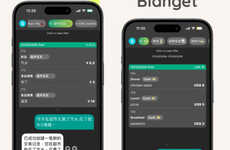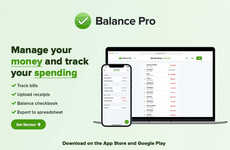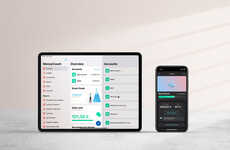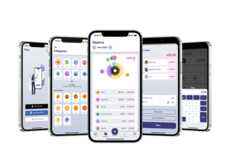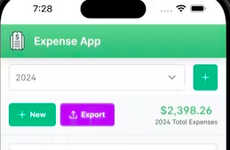
The Pocketbook Google Glass App is a Powerful Expense Tracker
Laura McQuarrie — April 3, 2014 — Tech
References: itunes.apple & getpocketbook
Pocketbook is a handy expense tracker that’s moving beyond mobile banking and exploring the future of banking with wearable technology Google Glass.
There are plenty of money management apps out there that are designed to help consumers be mindful of a specified budget, but with Google Glass, Pocketbook relays location-specific information to a user. For example, when looking at a product, the Pocketbook Google Glass app will provide information like where the same item can be found for a better price. The app is also designed to inform users of the average cost of menu items as they walk by restaurants, so that you’re not even tempted to eat someplace you know is not within your current budget.
As Alvin Singh, the CEO behind the small Australia-based startup describes, part of the reason behind developing Pocketbook was that "Banks have traditionally been slow to make strides on the consumer-facing applications that are the face of the banks." Considering that the Pocketbook Google Glass app is made to automatically group purchases into categories, present bank statements, bills, receipts and provide notifications for late fees, it’s like always having a personal financial planner at the ready. Integrated with wearable technology, this personal finance app could prove to be an empowering aid for consumers looking to stay away from or get out of debt.
There are plenty of money management apps out there that are designed to help consumers be mindful of a specified budget, but with Google Glass, Pocketbook relays location-specific information to a user. For example, when looking at a product, the Pocketbook Google Glass app will provide information like where the same item can be found for a better price. The app is also designed to inform users of the average cost of menu items as they walk by restaurants, so that you’re not even tempted to eat someplace you know is not within your current budget.
As Alvin Singh, the CEO behind the small Australia-based startup describes, part of the reason behind developing Pocketbook was that "Banks have traditionally been slow to make strides on the consumer-facing applications that are the face of the banks." Considering that the Pocketbook Google Glass app is made to automatically group purchases into categories, present bank statements, bills, receipts and provide notifications for late fees, it’s like always having a personal financial planner at the ready. Integrated with wearable technology, this personal finance app could prove to be an empowering aid for consumers looking to stay away from or get out of debt.
Trend Themes
1. Wearable Banking Apps - Developing apps for wearable technology like Google Glass to enhance the banking experience and provide location-specific information for making smarter financial decisions.
2. Automated Expense Tracking - Incorporating a feature that automatically groups purchases into categories, presents bank statements and bills, and provides notifications for late fees, making money management easier and more efficient.
3. Personal Finance Planning - Creating a personal finance app that functions as a personal financial planner providing consumers with tools to stay out of debt and make smarter financial decisions.
Industry Implications
1. Banking - Developing consumer-facing applications that enhance the banking experience and empower customers to take control of their finances with innovative wearable technology.
2. Technology - Incorporating automated expense tracking and personal finance planning features into existing technology products, such as smartphones and smartwatches.
3. Startups - Innovating in the personal finance space to create disruptive technology that changes the way consumers manage their money and make financial decisions.
3.5
Score
Popularity
Activity
Freshness

